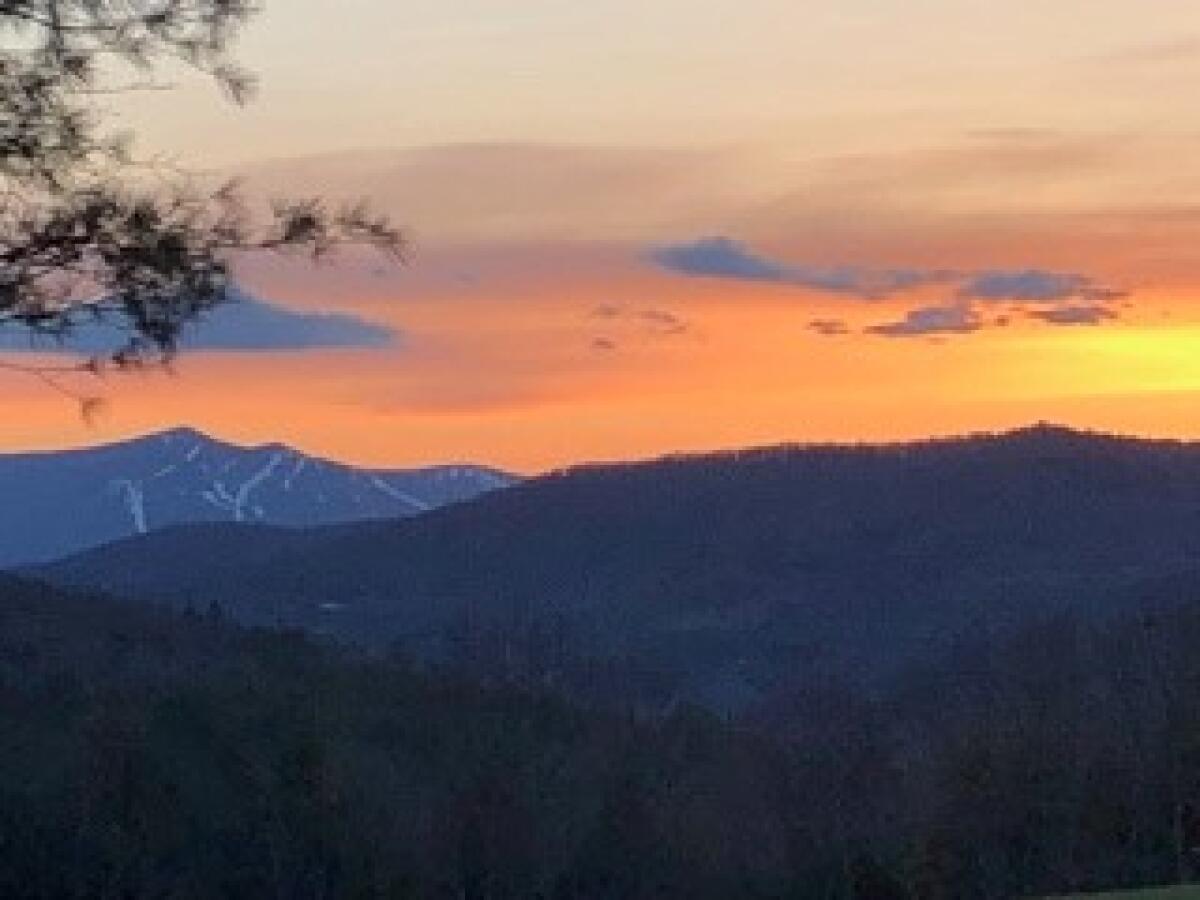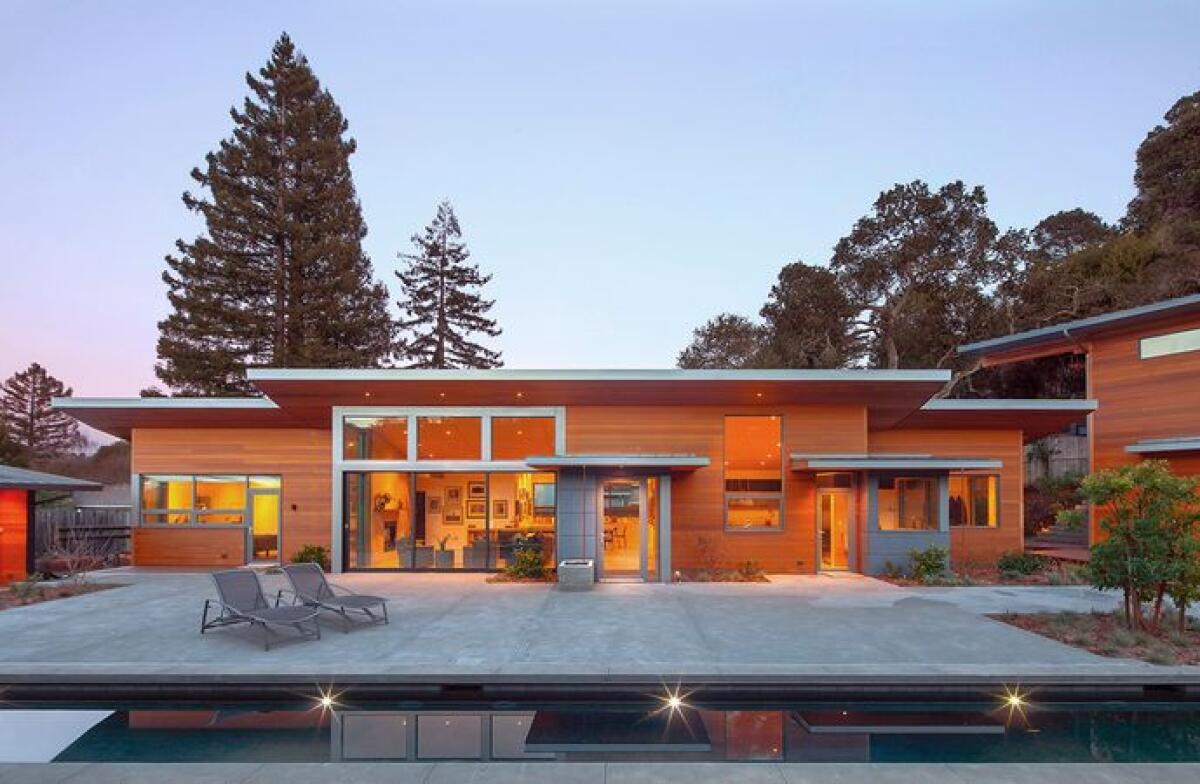Op-Ed: Leaving California

)
After more than four agreeable decades in California, my wife and I became climate migrants — highly privileged ones, to be sure — and moved to Vermont.
Our life in Marin County had turned into a tightrope walk.

In 2014, our savvy financial advisor, whom we’d acquired after a substantial bequest from my mother, told us we didn’t quite have the funds to build a new house. Leslie — yes, she’s Leslie Leslie — and I demurred. We tore down the house in Mill Valley where we’d lived for 31 years. It was beloved but it was shambly, and when we leveled it, we discovered it was filled with black mold.
In its place we built a new house, which, in addition to being sleek and beautiful, was environmentally state-of-the-art.
Designed by a skilled “green” architect, the new house had solar panels and radiant heat. Graywater, bioswales, a spectacularly performing induction stove — it oozed with environmental appurtenances. The ventilation system silently and meticulously cleansed the air, turning the place into an oasis during fire season. Compressed-bamboo framing made each room nearly soundproof and markedly increased the walls’ insulation capacity.
Outside, a glistening garden — the collaborative vision of Leslie and a landscape architect couple — consisted of 80% native plants and grasses, plus fruit trees and scores of David Austin roses. The property exuded tranquility, an antidote for the surrounding suburban bustle.
Many people who build a house end up bemoaning the experience. We didn’t. Creating a functional work of art was fundamentally pleasurable. We appreciated our perfectionist contractor and the skill of his craftsman workers. Leslie, an artist, wrote a Buddhist prayer of loving kindness and compassion on the roof and walls before they were painted over. In gentle reply, the painter added a faint white cross on a bathroom ceiling, which he also painted over. We all took pride in building something gorgeous.
I’ve written often about megaprojects — dams, bridges, concert halls, high-speed trains and Olympic Games — that almost invariably overshoot original cost and duration estimates, often by many multiples. As months passed and expenses mounted, I knew we were having our own little megaproject.
The house ended up consuming so much of our money that before it was finished, we understood we could not expect to live in it for the rest of our lives. From that point on, we felt as if we were merely borrowing the place, residing in it until we could no longer afford it, while it beguiled and occasionally seemed to taunt us with its suavité.
None of this detracted from the experience of inhabiting the house, but it induced a kind of detachment that prepared us for the end.
We lasted five years. In that time, the advance of climate change meant that each fire season was hotter and longer than the one before it. Then came the surrealistic orange-black morning in Mill Valley last September that looked like a solar eclipse, only more ominous, when ashes from nearby fires blotted out most light until close to noon. Soon after, we heard that insurers had declined to offer renewals to some homeowners in our area, and we knew it was time to sell, before the house’s value declined.
Our resolve was reinforced by serendipity, as Leslie’s close friend from college days told her he was selling a 5-acre plot in Woodstock, Vt., with a postcard-perfect view of a distant mountain. We can attest that on this verdant property, birdsong, not car traffic, is audible, and the Milky Way is visible at night. An expert contractor, our friend didn’t just sell us the land, he’s building us a new house on it — for a fraction of what the Mill Valley one cost and, we think, in half the time. Vermont’s lower cost of living and simpler regulations make this eminently plausible. In the meantime, we are renting.
We moved with more excitement than regret. We understand our enormous good fortune: Most people can’t afford to pick up stakes, no matter how dire the prognosis on home ground. We loved the Bay Area, and now, most likely, we will love another place, too.
We departed with gratitude for the kindnesses and thoughtfulness of many people we’ve known, with pain over dear family members and friends (and the neighbors’ dog we loved looking after) whom we are leaving behind, and with grief for the suffering and chaos that climate change has just begun to generate, emphatically in California and eventually everywhere.
We’re at the beginning of the diaspora, and we shudder at the thought.
Jacques Leslie is a contributing writer to Opinion.
More to Read
A cure for the common opinion
Get thought-provoking perspectives with our weekly newsletter.
You may occasionally receive promotional content from the Los Angeles Times.










